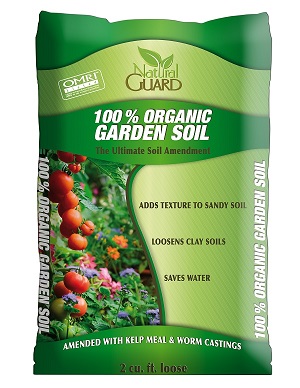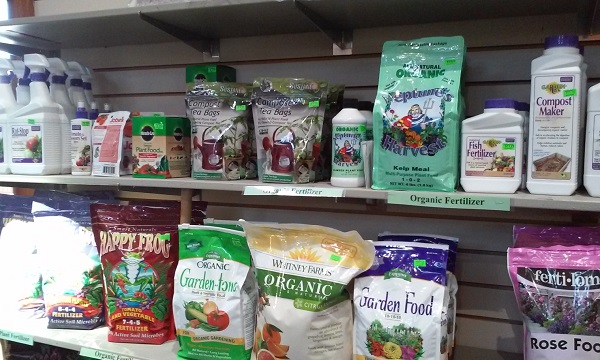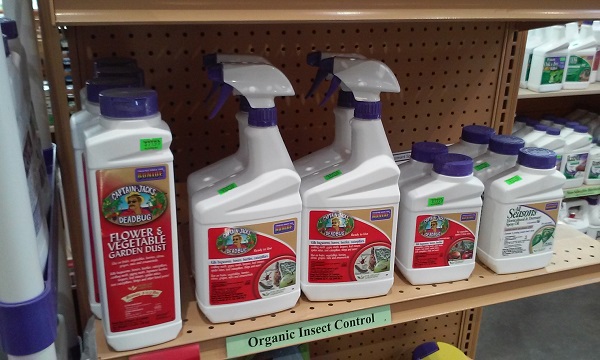Natural and organic gardening is all about gardening without the use synthetic chemicals and working with nature by minimizing the resources used and replenishing those used by the garden. Many community gardens limit use to organic or natural fertilizers and sprays. Here are some tips and products that you can use to help you “go organic” in the garden this season. Stop in anytime and our knowledgeable staff can help you find the right product from compost to fertilizers.
- Choose plants best suited to the site and climate. Plants grown in the best spot require fewer inputs to grow.
- Soil testing lets you know just what nutrients you are missing and is available through the U of M. Soil can then be amended to create the best growing environment.
- Replenish resources by adding organic matter such as compost (purchased or create your own), composted manures, decomposed leaves and herbicide-free grass clippings.
Soils/Amendments
- Soil – Ocean Forest or Happy Frog (especially for containers)
- Create your own compost
- Organic Garden Soil
- Mushroom, Cotton Burr or Purple Cow Activated Compost
Fertilizer – Slow release and quick acting available, good for container or ground grown plants. Nutrients are not long lasting and need frequent reapplication every 7-10 days. Many options here including fish emulsion, kelp meal, Happy Frog and more.
Insect Control
- Hand pick bugs and toss into a bucket of soapy water.
- Products are naturally derived – pyrethrins are made from chrysanthemum flowers, spinosad comes from bacteria found in rum stills. Other products include neem oil and insecticidal soap. Look for Captain Jacks Dead Bug Brew, Neem Oil, and Bonide Insecticidal Soap on our shelves for easy insect control.
Weed control
- Dig or pull.
- Sprays available are usually non-selective meaning if it is green it will die when sprayed.
- Use corn gluten to limit weed growth although it is not for areas where you might be growing seeds.





